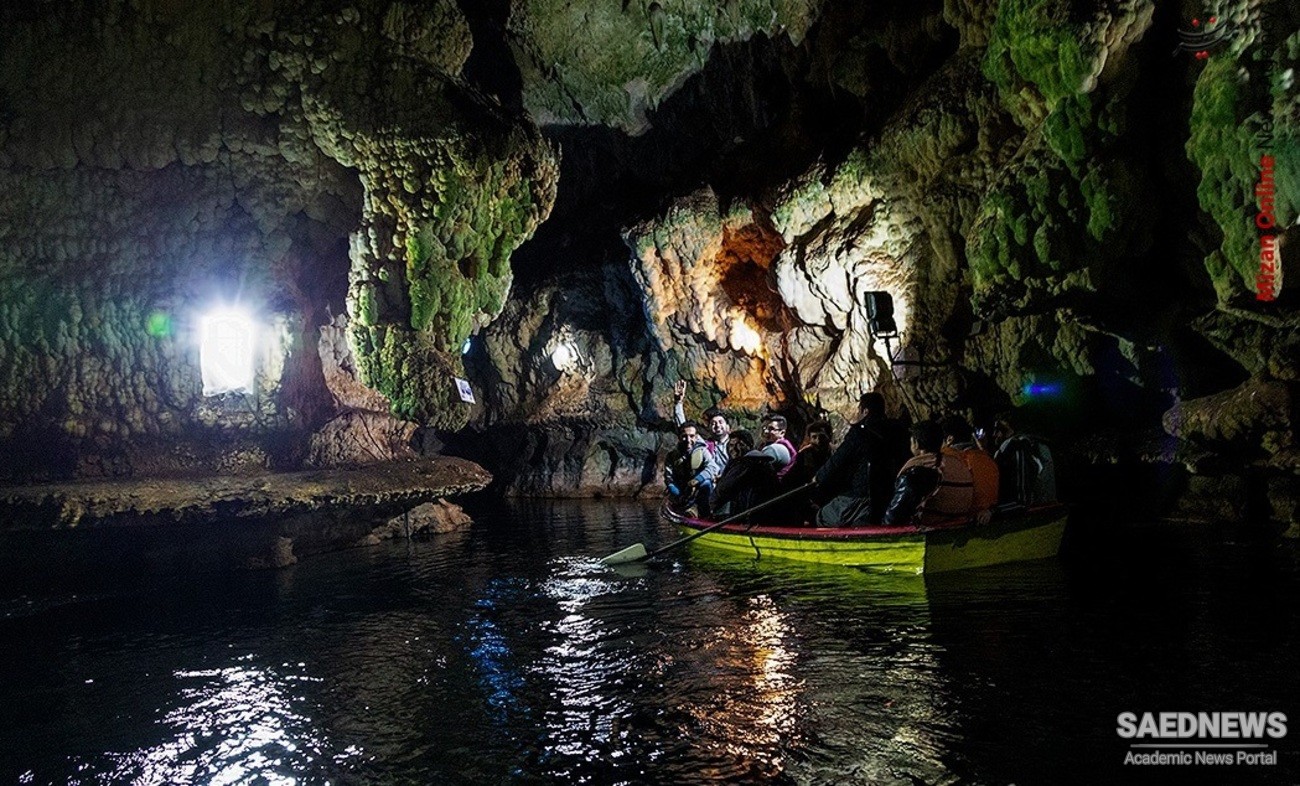The Sahoolan cave is the second water cave of Iran after Alisadr cave. This cave dating back to the end of the Cretaceous period is related to about 70 million years ago based on the geological activity and it was a residence and shelter for the human during the second and first millennium BC.
Sahoolan cave was studied and identified by Jacques de Morgan for the first time in 100 years ago and after that by the English group during the years of World War II then by Iranian speleologists in 1373 Mehr SH and it was protected in 1379.
This cave has been constructed of some large ponds, linked together by water channels. Currently, 300 meters of waterway and 250 meters of the waterless route of it has been discovered and organized. This cave has two main entrances with a way between them and it is possible to enter from one of them and exit from the other one.
The height of the cave roof from the surface of the lake is about 50 meters and the depth of water in some places is near to 30 meters. The temperature difference of the cave and the outdoor is between 10 to 15 degrees and the cave humidity is variable between 70 to 80 percent so that the surface of the stones and rocks has been covered by moss due to high moisture.

The only organisms of this cave are wild pigeons and bat. No alga grows up in the water of the cave due to the darkness and lack of light and no organisms live there except for the microscopic organisms. Calcareous sediments in various shapes inside the cave and the beautiful cressets are the eye-catching landscape of the cave.
Also, there are some facilities for tourists inside and around the cave. The cave roof covered with pure calcium carbonate is about 10 meters upper than the height of water in some parts and it has been mixed with other elements in some other parts. The cave sediments in various and attractive shapes can be seen in abundance where there is no water.
The interior view of the cave is very innovative and its weather is cool in summer and warm and pleasant in winter. Some proceedings have been done to increase the waterways for boating and the land routes for visit ways and some new beautiful scenery has been created in the cave. Also, there is some accommodation, sightseeing and entertainment services for tourists around the cave area and the possibility of climbing has been provided in this region.


 Mahallat Spas and Hot Spring, Markazi Province, Iran
Mahallat Spas and Hot Spring, Markazi Province, Iran














































